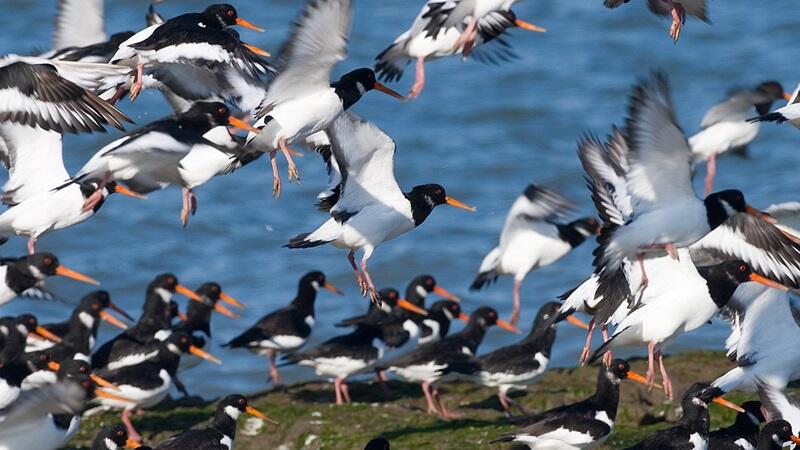Workshop focused on dune and beach management effects on breeding birds

On 24 March 2022 members of trilateral expert groups EG Breeding Birds and EG Saltmarshes and Dunes together with other experts held a bilateral workshop on ‘Declining breeding bird numbers in the Wadden Sea in a view of management and restoration of dunes and beaches’ in Hamburg. The event gave floor to discuss a basic framework for developing guidelines concerning the effective management of dunes and beaches and the improvement of breeding habitat conditions.
All dunes and beach areas outside human settlements have been designated as Natura 2000 areas under the Birds and Habitats Directives and National Conservation. However, both habitats are also important for coastal defence, recreation, drinking-water extraction, which may result in conflicting management recommendations. Moreover, the results of the Trilateral Monitoring and Assessment Programme on breeding birds show that 18 out of 32 bird species have been declining since 1991. This includes several species which are breeding in dunes and beach habitats like Short-eared Owl, Curlew, Great Ringed Plover, Kentish Plover or Hen Harrier. Poor breeding success, predation, and unfavourable habitat developments, as well as flooding and human disturbances are identified as main reasons for the decline of breeding bird populations. Thus, the restoration and management of dunes and beaches can have a crucial effect on both the favourable conservation status of these habitats and breeding birds relying on them.
The workshop participants agreed that the preservation (or stimulation) of natural dynamics and processes in dunes and beach habitats should be given priority. Secondary conservation measures such as grazing should be considered where necessary. The identification of areas that are missing natural dynamics would be the necessary first step. For the development of adequate trilateral management measures, an open exchange with experts from other fields, such as climate change adaptation and coastal protection is envisaged, while the engagement of site managers is important for the effective implementation of these measures. To develop a legal framework for the management of dunes, beaches and the fauna relying on these habitats, it will be essential to bring together the management of birds and habitats with EU regulations.
In general, the workshop once again highlighted the importance of working across disciplines and across boundaries for the effective management of the Wadden Sea.
